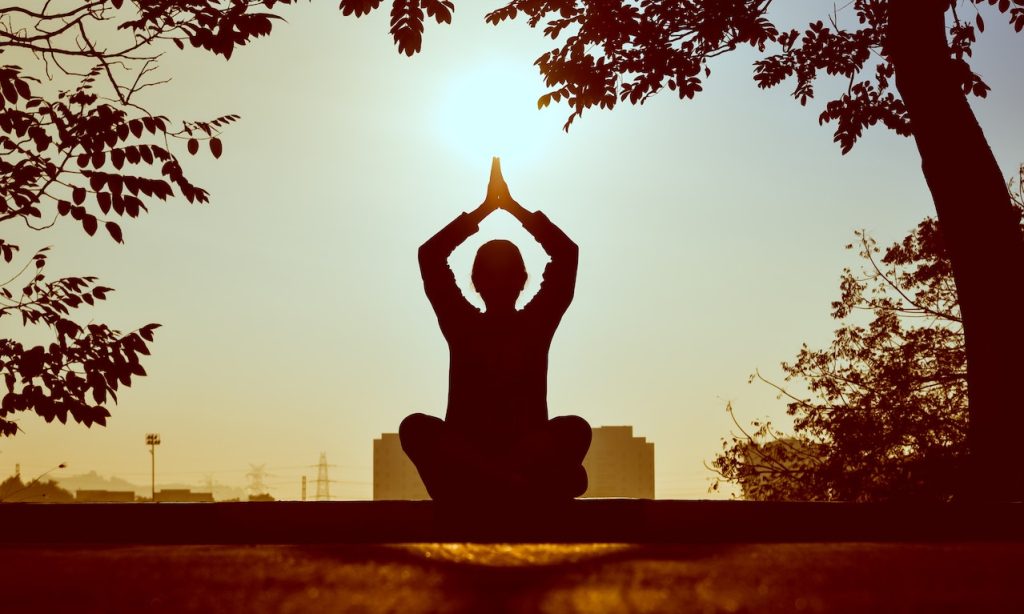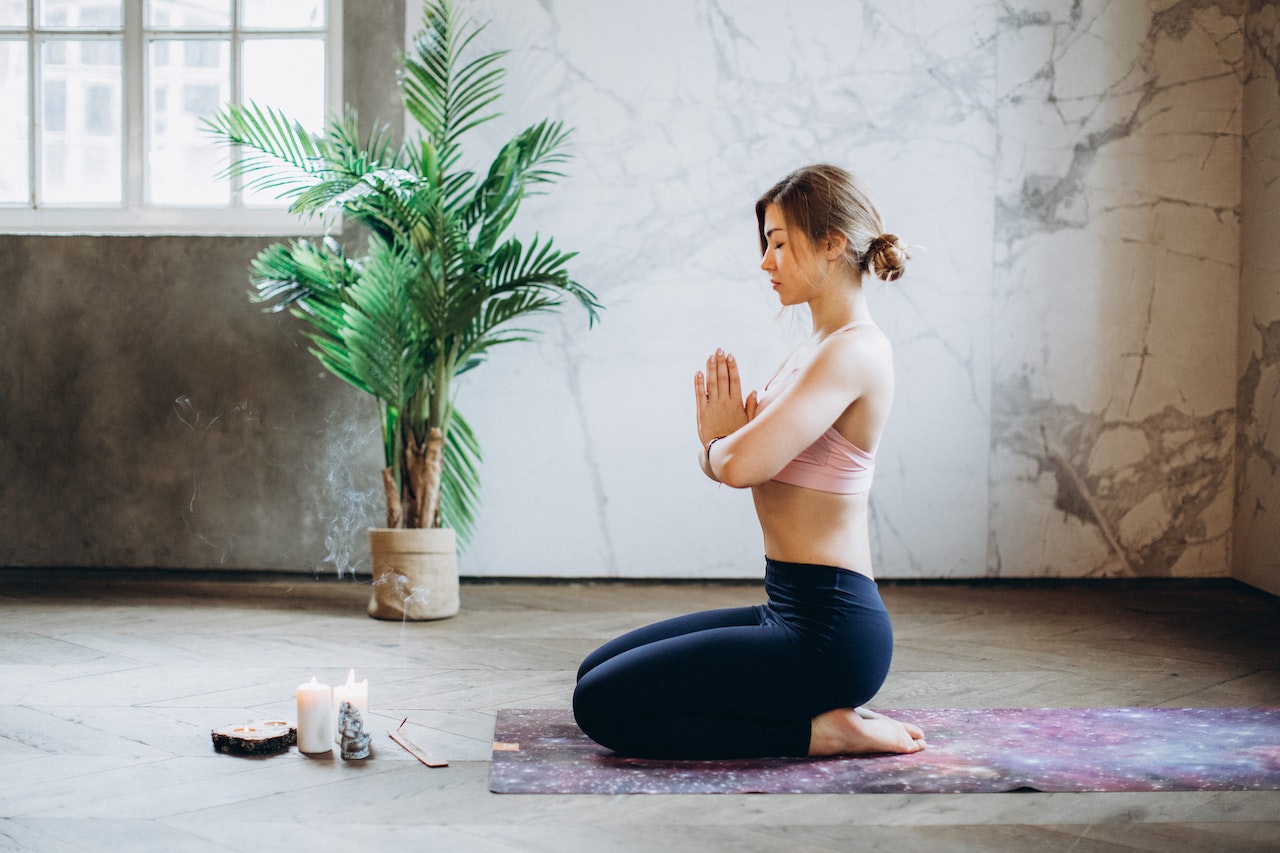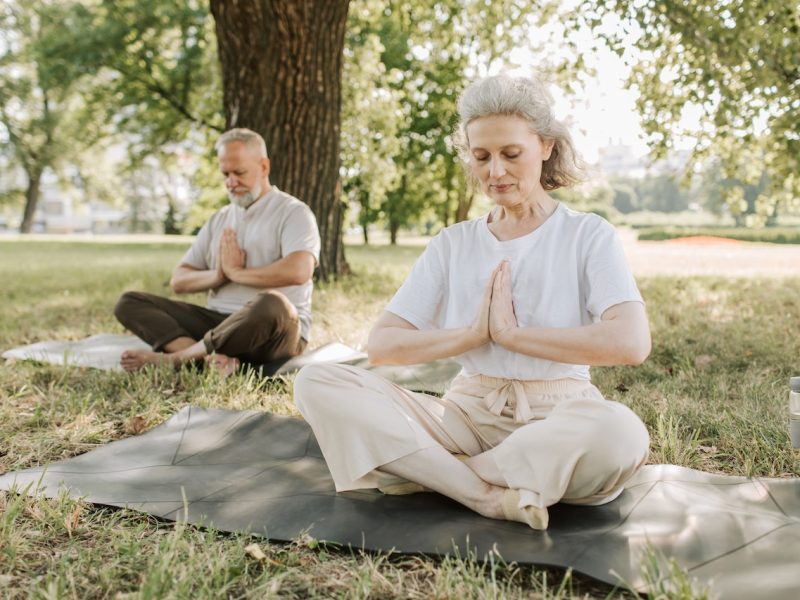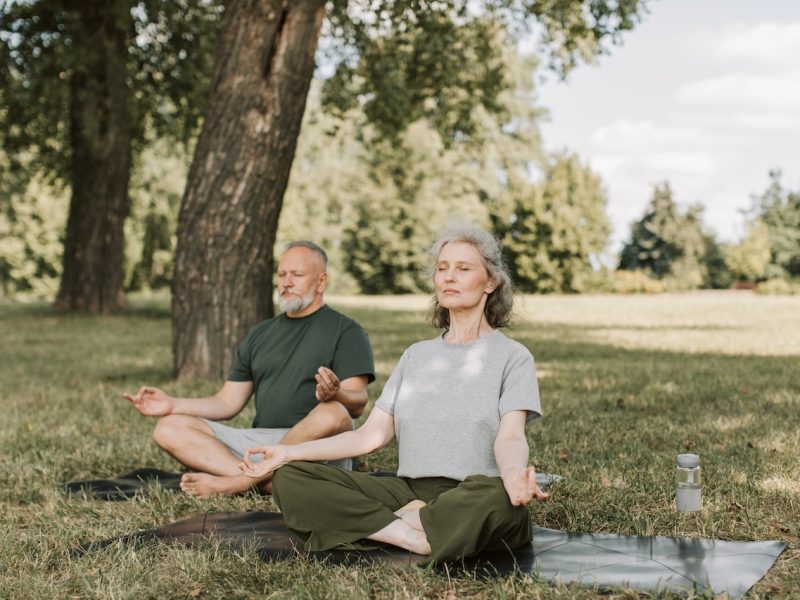In today’s fast-paced world, stress and anxiety are increasingly common problems that can take a toll on our mental and physical health. Fortunately, practicing Yoga can be a powerful tool for managing stress and promoting relaxation.
Yoga is a mind-body practice that combines physical postures, breathing exercises, and meditation. It is designed to promote balance and harmony within the body and mind, and has been shown to have a number of health benefits, including reducing stress and anxiety.
One of the main ways that Yoga helps to relieve stress is by activating the relaxation response. This is a natural physiological response that occurs when the body is in a state of deep relaxation, and it helps to counteract the effects of the stress response.
The stress response, also known as the fight-or-flight response, is a natural survival mechanism that helps us respond to threats or danger. When we experience stress, our bodies release hormones like adrenaline and cortisol, which increase heart rate, blood pressure, and respiration, among other things. These changes prepare us to fight or flee from a perceived threat.
While the stress response can be helpful in short-term situations, such as when we need to avoid danger or meet a deadline, chronic stress can have negative effects on our health. It can lead to a range of physical and mental health problems, including high blood pressure, heart disease, anxiety, and depression.
Yoga helps to counteract the effects of chronic stress by activating the relaxation response. When we practice Yoga, we engage in slow, deep breathing, which helps to stimulate the parasympathetic nervous system. This is the part of the nervous system that is responsible for rest and relaxation, and it helps to lower heart rate, blood pressure, and respiration.
In addition to activating the relaxation response, Yoga can also help to reduce stress by promoting mindfulness and self-awareness. Mindfulness is the practice of paying attention to the present moment, without judgment or distraction. When we practice Yoga, we are encouraged to focus on our breath and body, which helps to cultivate a sense of mindfulness and awareness.
This awareness can help us to become more attuned to our thoughts and emotions, and to develop a greater sense of self-compassion and acceptance. By becoming more mindful and self-aware, we can learn to identify and manage sources of stress in our lives more effectively.

Another way that Yoga can help to reduce stress is by improving sleep quality. Many people who experience stress and anxiety also struggle with sleep problems, such as insomnia or restless sleep. Research has shown that practicing Yoga can help to improve sleep quality by promoting relaxation and reducing stress and anxiety.
One study published in the Journal of Alternative and Complementary Medicine found that practicing Yoga for 12 weeks led to significant improvements in sleep quality, compared to a control group. The participants who practiced Yoga reported less fatigue, less daytime sleepiness, and fewer sleep disturbances than those who did not practice Yoga.
Yoga can also help to reduce muscle tension and promote relaxation in the body. When we experience stress, we often hold tension in our muscles, which can lead to pain, stiffness, and discomfort. Practicing Yoga postures can help to release this tension and promote relaxation in the body.
Certain Yoga poses, such as forward folds and seated twists, can be particularly effective for relieving tension in the neck, shoulders, and back. These areas are common sites of tension for many people, especially those who spend long hours sitting at a desk or using electronic devices.
Finally, practicing Yoga can help to improve overall physical and mental well-being, which can in turn reduce stress levels. When we feel physically and mentally healthy, we are better able to cope with the demands of daily life and to manage stress more effectively.
Yoga has been shown to have a number of health benefits, including reducing inflammation, improving cardiovascular health, and boosting immune function. These benefits can help to improve overall well-being and reduce the risk of chronic disease, which can be a significant source of stress for many people.
In addition to these physical benefits, Yoga can also help to improve mental health and well-being. Studies have shown that practicing Yoga can help to reduce symptoms of anxiety and depression, improve mood, and increase feelings of relaxation and well-being.
One study published in the Journal of Clinical Psychology found that practicing Yoga for six weeks led to significant improvements in symptoms of anxiety and depression, compared to a control group. The participants who practiced Yoga reported less anxiety and depression, and greater feelings of well-being and relaxation than those who did not practice Yoga.
Overall, there are many benefits to practicing Yoga for stress relief and relaxation. Whether you are looking to reduce stress and anxiety, improve sleep quality, or promote physical and mental well-being, Yoga can be a powerful tool for achieving your goals.
To get started with a Yoga practice, consider taking a class with a certified Yoga instructor. This can help to ensure that you are practicing Yoga safely and effectively, and can also provide you with guidance and support as you develop your practice.
In addition to taking classes, you can also practice Yoga at home using online resources or DVDs. There are many free or low-cost resources available online that can help you get started with a Yoga practice, including instructional videos and guided meditations.
No matter how you choose to practice Yoga, remember that it is a journey, not a destination. It may take time and practice to develop a regular Yoga practice and to experience the benefits of Yoga for stress relief and relaxation.
However, with patience, persistence, and a willingness to explore and learn, you can develop a meaningful and rewarding Yoga practice that can help you to manage stress, improve well-being, and promote relaxation and inner peace.
Author: Taylor – Images: pexels.com
- How Yoga Can Improve Your Mood and Reduce Anxiety - November 23, 2023
- How to Use Yoga to Elevate Your Mood and Reduce Symptoms of Depression and Anxiety - April 25, 2023
- Yoga for Better Sex: How to Use Yoga to Enhance Your Sexual Performance and Satisfaction - April 24, 2023



